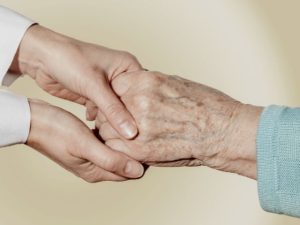Toileting
Due to the increase in incontinence that is associated with memory loss it is important to offer regular toileting to the patient to be proactive and prevent incontinence as much as possible. If the patient does experience incontinence, it is important to stay calm and not become frustrated as it is out of the patient’s control.
Staff Support
If you are caring for patients who are known to be combative, it can be helpful to have additional staff support near you when providing cares and administering medications. The patient may respond better to certain staff and in those cases, it is helpful to have that staff member nearby. Keep in mind a patient may also have a preference of male caregiver or female caregiver and it is important to accommodate this when possible.
Continuing Education
If you feel you would benefit from completing additional continuing nursing education on ‘what is memory care’ you should do so.
This will assist you in feeling more confident when caring for patients with memory loss. It will also give you a more in-depth understanding of what the patient is experiencing and allow for greater empathy of the patients you are caring for.
Frequent Monitoring
To help prevent a patient from wandering or getting lost it is important to do frequent checks on them and keep their whereabouts known. There is usually support staff available to assist with this. Always ensure patient safety.
Music Therapy
If you know the patient’s favorite type of music, playing music or having the patient sing songs can provide emotional and behavioral benefits for patients with memory loss. Research has shown that musical memories are often kept in the memory because the brain areas linked to musical memories are undamaged by memory loss.









